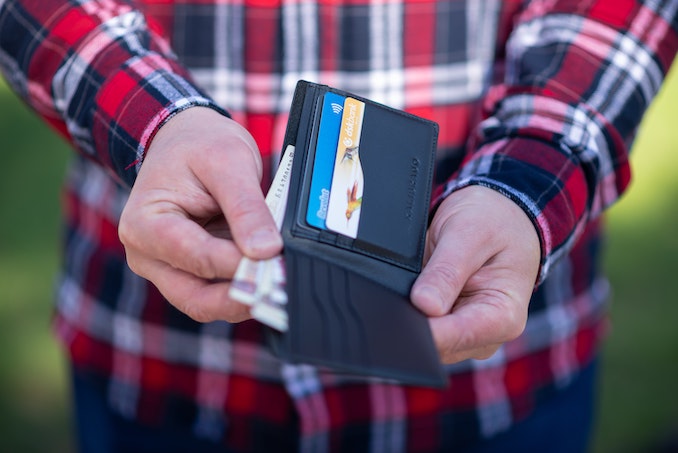Are you suffering from financial stress? Signs may include arguing about money, mood swings, depression and difficulty sleeping. In a report conducted by AMP Financial, more than 1.8 million working Australians are dealing with financial stress. Financial stress can stem from:
- Not developing good financial habits as children
- Lack of education on how to save money
- Inability to find work
- Living beyond one’s means
But it’s never too late to develop good financial habits. Keep reading to discover how you can reduce your financial stress.
Learn to pay attention to your spending habits
The most common mistake people make with their finances is not knowing what’s incoming and outgoing. How many of you ever take a close look at your bank statements? It may be somewhat of a surprise to discover how much you’re actually spending. All those streaming services and long forgotten apps soon add up—$9.99 here, $6.00 there. It doesn’t seem like much when you first sign up. Don’t forget to count the nights where you couldn’t be bothered cooking and opted for Uber Eats, or the designer boots and clothing you purchased on After Pay, or the gym membership you’ve been meaning to cancel but haven’t. There is little wonder as to why so many people are living payday to payday.
Our financial experts recommend auditing your bank statement. Use a highlighter to mark everything you’re not sure of, or anything you no longer use and cancel them! You don’t need all TV streaming services, so pick your favourite and change them every month if you can’t decide.
Also, review how much you’re paying for health insurance and utility providers, such as internet, phone providers and electricity. Don’t keep paying top dollar because it’s too much hassle to switch.
Customise a budget
Once you know what you are spending, your next step should be to learn how to create a workable budget and stick to it.
The first step is to list everything that are essentials such as your home loan, food, rego, petrol and electricity, then deduct this from the amount you get paid every week. After you’ve worked out what you have to pay for, make a list of the things you would like to have in order of importance to see whether your budget can accommodate them. Ideally, you would also set aside 20% of your wages aside for savings for an emergency fund or investing. Understandably, this can be difficult if you are already suffering from financial stress.
Set aside money for an emergency
According to News.com.au, many Australians would be broke in a month if they lost their jobs. 2020 taught us that you should aim to have enough funds to cover you for a minimum of three months. Consider any investments carefully, so you can take your money out if necessary, or opt for investments that provide a passive income. Talk to a financial advisor about a future proof investment plan
While superannuation is one of the more common ways Australians choose to invest their savings, you won’t be able to access that money until your 65th birthday. It makes good financial sense to diversify your investment portfolio—using a range of investment strategies—for passive income streams, but also create wealth.
It’s best to talk to a financial advisor or investment strategist to talk about your investment options so that you can minimise risk and maximise tasks.
Beginner investors could consider investing Blue Chip stocks, property bonds that allow investors to draw a monthly income, small businesses, long term interest accounts, investment properties or even salary sacrificing.
If you can live without having a credit card, good on you! But paying the minimum monthly repayment and then using it to pay bills or sneaky luxuries can be a hard financial habit to break. Getting rid of the credit card balance should be a priority. Limit your use! Don’t kid yourself that you “only have a credit card for emergencies”. By setting aside 20% of your wages into a savings account every payday, you would have an emergency fund.
Open a separate savings accounts
Offset your savings into a separate account that you can’t access with an ATM card. The old adage goes ‘out of sight, out of mind’.
Know what government incentives you’re entitled to
If you are a small business owner or first home buyer, be aware of any government grants or incentives you may be eligible for.
Create a good relationships with a financial advisor, business mentor or tax accountant
By connecting with financial experts you can learn how to minimise tax and know what you’re entitled to claim. For example, if you own an investment property, you may be entitled to a tax break.
If you want to create good habits that reduce your financial stress, it’s never too late to talk to a financial advisor. No judgement, just expert advice and a new roadmap to financial success.
—
This content was produced with the help of Gerry Incollingo, the MD of LCI Partners, a firm that specialises in accounting advisory, lending, wealth, property, insurance and legal.
Feature image courtesy of kalibrado.com

